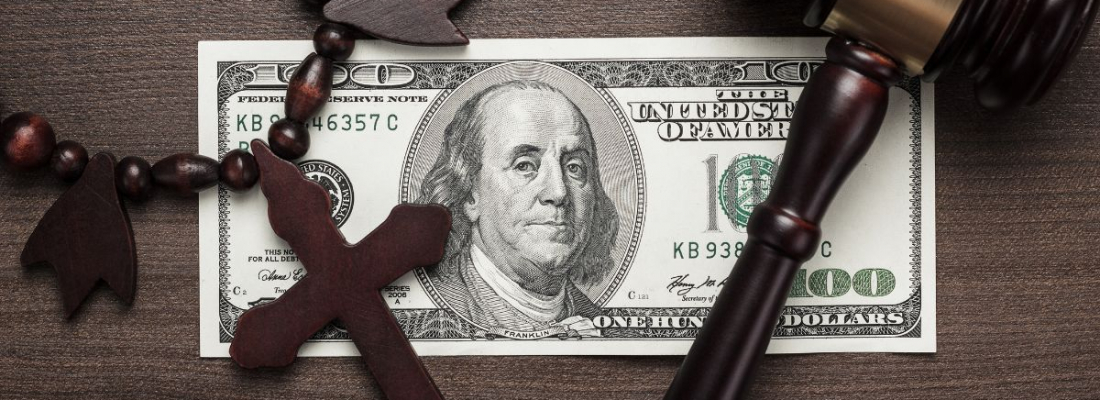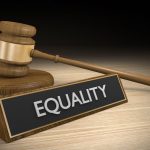Churches and other religious organizations may have legal concerns that are unique from other businesses. However, they still may be the subject of lawsuits filed by disgruntled former employees, nearby landowners, and others. If your church is facing a potential lawsuit, you should immediately consult with an experienced church and religious organization attorney.
While churches can face the same types of legal liability as other private companies, they tend to face some lawsuits more commonly than others. These legal issues may include suits related to the sexual abuse of minors, property disputes, personal injuries, zoning issues, and insurance coverage disputes. Obtaining legal representation at the outset of your legal problem can be critical in reaching a better outcome in your case, so call 949.245.3177 to reach Church Law Center and get the legal advice that you need.
#1: Sexual abuse of a minor
Sexual abuse of a minor is a serious crime, but it also can result in civil liability if church leaders knew about the abuse and failed to take steps to stop it. Even if a prosecutor chooses not to pursue criminal charges against the alleged abuser, the victim still may file a civil lawsuit seeking compensation that implicates the church.
For example, if the alleged abuser was a church staff member or volunteer, or if the abuse occurred on church grounds or during a church-sponsored event, the victim is likely to name the church as a defendant in any civil lawsuit they file. Unfortunately, in many cases of sexual abuse within churches over the years, church leaders have failed to take adequate precautions to screen staff members and volunteers or to control their interactions with children.
Churches can proactively take steps to avoid this type of liability by:
- Taking all complaints of abuse seriously and reporting them to the proper law enforcement authorities.
- Adopting an anti-abuse policy and a process to handle complaints.
- Determining and monitoring individuals within your church who have a criminal background or who are listed on the sex offender registry.
- Getting advice from a lawyer any time allegations of abuse occur.
#2: Property disputes
One of the most complicated property disputes for churches that own land is uncertainty about the land’s ownership. These disputes are particularly common when churches have operated on the land for a long period. If churches do not resolve their real estate title problems, selling the land or using it as collateral for a loan may prove impossible.
For example, if the church owns the land, confirm that the deed properly describes the name and entity type of the church. These details are particularly important if the church has changed names or legal entity types over the years.
Another property-related issue that churches may encounter when they rent property is landlord-tenant disputes. These disputes can involve maintenance issues, trouble with other tenants, or a change in property ownership or policies. If the lease agreement does not give the church an option to get out of a lease in response to a decision by the landlord that adversely affects church operations, the church may need to take action to force the issue.
#3: Personal injuries
A church or religious organization that controls, owns, or possesses a property (such as a church’s ownership or control of the building where it holds meetings) owes a duty to exercise reasonable care to prevent injury to visitors to the property. If someone suffers a significant injury while on church property or acting as an agent of the church, the church may face a personal injury lawsuit.
Churches can follow some guiding principles to help them examine their potential risks when fulfilling their duty to exercise reasonable care:
- The foreseeability of harm – Good maintenance practices can go a long way toward mitigating the risk of a premises liability lawsuit. If a condition exists on the property that causes an injury that, in hindsight, was readily foreseeable, the church is more likely to face liability for any resulting injuries.
- Seriousness of the conduct involved – Whether a landlord will be held liable for premises liability depends partly on how it behaved concerning the cause of the plaintiff’s injury. For example, if the church were aware of a cracked sidewalk but failed to correct it, that fact would weigh against the church in a personal injury case in which a person suffered injuries from tripping on the loose concrete. On the other hand, if the sidewalk cracked only after the injury victim stepped on them, the church may escape significant liability.
- Nature of the activities taking place on the property – A church should evaluate the risk of injury in light of the kinds of activities happening on church property. For instance, routine worship services might involve a different degree of risk than an exercise class.
- Third party actions – Premises liability can sometimes apply in cases where a visitor hurts another visitor on the property, even if the injury was caused by mistake. The extent to which a church is required to prevent these kinds of injuries depends on the situation.
#4: Zoning Issues
The Religious Land Use and Institutionalized Persons Act (RLUIPA) prohibits zoning laws that discriminate against churches and other places of religious activities. Under RLUIPA, it is unlawful for most localities to adopt zoning laws that “substantially burden the religious exercise of churches or other religious assemblies or institutions absent the least restrictive means of furthering a compelling government interest.”
Before purchasing land, churches must examine applicable zoning laws. In some cases, it may be necessary to pursue an exemption or change to the existing zoning of the land to allow for the full scope of the church’s activities. For example, a special exception may be necessary if the church wishes to operate a Sunday School, but a zoning regulation prohibits any form of childcare on the land. Additionally, a church facing problematic changes to zoning laws that will affect its ability to operate in its current location and potentially harm the value of its real estate may have options for opposing the measure.
#5: Insurance coverage disputes
Disputes between churches and insurance companies generally involve coverage exclusions or a failure to notify. For example, a general liability insurance policy will not typically include coverage for a claim alleging sexual misconduct by a church employee or volunteer. As a result, a church should obtain additional special coverage to defend against these claims.
Insurance policies also typically specify how soon a church must notify the insurer of a potential claim. If church officials miss this deadline, the insurer will likely deny the claim. The best way to avoid this situation is to be sure that church management is familiar with all the provisions in the church’s insurance policies and follows them.
We Can Assist Churches With Legal Advice
Whether your church or religious organization needs legal advice about their daily operations or counsel and representation about a particular situation, the church and religious organizations lawyers at Church Law Center are here to help. We have the knowledge and experience it takes to represent your church or religious entity in all legal matters.
Call the Church Law Center today at (949) 892-1221 , email us at info@churchlawcenter.com, or contact us online to learn more about the services we can offer your nonprofit, church, or religious organization.
We’d like to offer a special thanks to our good friend Richard Hammar, attorney and co-founder of Church Law & Tax, who provided his insight for the content of this article. Richard Hammar is one of the nation’s leading authorities on the diverse issues that face churches and religious organizations today.






